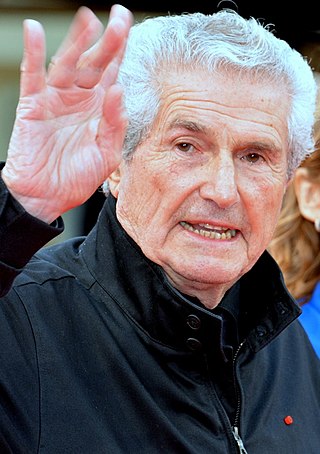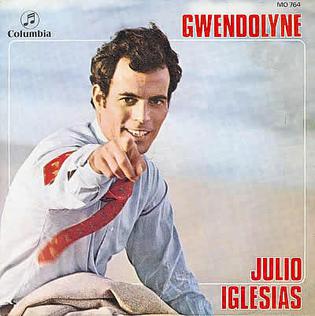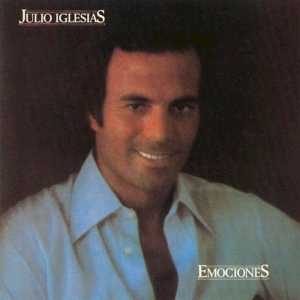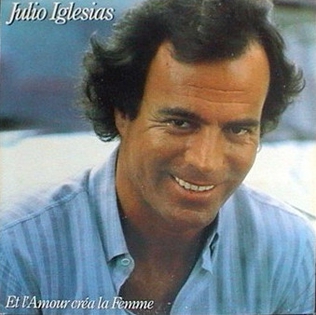
Julio José Iglesias Preysler is a Spanish singer. In 2008, he was declared the winner of the CMT competition Gone Country.

Claude Barruck Joseph Lelouch is a French film director, writer, cinematographer, actor and producer. Lelouch grew up in an Algerian Jewish family. He emerged as a prominent director in the 1960s. Lelouch gained critical acclaim for his 1966 romantic melodrama film A Man and A Woman. At the 39th Academy Awards in 1967, A Man and a Woman won Best Original Screenplay and Best Foreign Language Film. Lelouch was also nominated for Best Director. While his films have gained him international recognition since the 1960s, Lelouch's methods and style of film are known for attracting criticism.
"Begin the Beguine" is a popular song written by Cole Porter. Porter composed the song between Kalabahi, Indonesia, and Fiji during a 1935 Pacific cruise aboard Cunard's ocean liner Franconia. In October 1935, it was introduced by June Knight in the Broadway musical Jubilee, produced at the Imperial Theatre in New York City. Beguine is a dance and music form, similar to a slow rumba.

Lena Burke, also known as Lena Pérez or simply Lena is a Cuban singer-songwriter.

Manuel Álvarez-Beigbeder Pérez, better known as Manuel Alejandro, is a Spanish composer of Latin love songs, which are better known as ballads. He has written, composed, and arranged songs for the likes of Luis Miguel, Plácido Domingo, Nino Bravo, Julio Iglesias, Raphael, Hernaldo Zúñiga, José José, José Luis Rodríguez, Emmanuel, Enrique Guzmán, Isabel Pantoja, Rocío Jurado, Rudy Marquez, and Jeanette, among many others.

"To All the Girls I've Loved Before" is a song written by Hal David (words) and Albert Hammond (music). It was originally recorded by Hammond in 1975 on his album 99 Miles From L.A., but is more famous for a 1984 recording by Julio Iglesias and Willie Nelson, which appeared on Iglesias's album 1100 Bel Air Place. A breakthrough for Iglesias in the English language market, the song peaked at No. 5 on the Billboard Hot 100 and No. 1 on the Canadian RPM Top Singles chart. "To All the Girls I've Loved Before" went to number one on the country chart, and was one of two entries on the country chart for Julio Iglesias and Willie Nelson as a duo.

Damien Sargue is a French pop singer known for his performance of Romeo in Gérard Presgurvic's Roméo et Juliette, de la Haine à l'Amour. A French native, he grew up in Caen, Normandy, France with his mother Miriam, his father Pierre, brother Julien, and his sisters Julie and Sarah, until his parents divorced when he was only a year old. When he was little boy he wanted to practice karate but his mom registered him in song lessons in Caen Ecole des Variétés de Caen. In 2009, Sargue married his Romeo et Juliette co-star Joy Esther, but the couple divorced a year later. In 2017, he married dancer Emily Surde, who was also in the Romeo et Juliette dance troupe, with whom he has daughter, Billie-Rose, born in 2014.

Nuno Resende is a Portuguese singer.

Julio Iglesias is the best selling international artist in Brazil with over 12.4 million records sold and also one of the best-selling artists worldwide, with 100 million records sold in 14 languages and released 80 albums, and more than 2,600 gold and platinum records certified. He holds the Guinness World Records for the Best-selling Male Latin Artist.

Julio José Iglesias de la Cueva is a Spanish singer, songwriter and former professional footballer. Iglesias is recognized as the most commercially successful Spanish singer in the world and one of the top record sellers in music history, having sold more than 100 million records worldwide in 14 languages. It is estimated that during his career he has performed in more than 5000 concerts, for over 60 million people in five continents. In April 2013, Iglesias was inducted into the Latin Songwriters Hall of Fame.

"Gwendolyne", sometimes spelt "Gwendoline", is a song composed and recorded by Spanish singer Julio Iglesias, co-written by Leo Johns. It is best known as the Spanish entry at the Eurovision Song Contest 1970, held in Amsterdam.

"All of You" is a 1984 vocal duet between Spanish singer and songwriter Julio Iglesias and American singer Diana Ross, which was released on June 12 as the lead single from both Iglesias's album 1100 Bel Air Place, released on the Columbia Records label, and Ross's fifteenth album, Swept Away (1984), released on the RCA Records label, for which Ross was then recording. It was written by Cynthia Weil, Iglesias and Tony Renis, and produced by Richard Perry.

Emociones is a 1978 album by Spanish singer Julio Iglesias.
Latin ballad is a sentimental ballad derived from bolero that originated in the early 1960s in Los Angeles, California and Southern California.
'Vous les femmes may refer to:

Et l'amour crea la femme is a 1982 album by Julio Iglesias.

À vous les femmes is a 1979 album by Julio Iglesias.

Latin Lovers is a compilation album produced by M6 Metropole television joining well-known artists. The album was released on 23 June 2014 and includes tributes to Latin music.
Pobre diable may refer to:

"Agua Dulce, Agua Salá" is a song from Spanish singer Julio Iglesias's studio album La Carretera (1995). The song was written by Estéfano, Donato Poveda, and Hal Batt and produced by Ramón Arcusa. It was released as the lead single from the album in 1995. A rumba flamenca, the song deals with the theme of life. The song received positive reactions from music critics, mostly being found catchy by them. It was a recipient of the ASCAP Latin Award in 1996. Commercially, the song peaked at number three on the Hot Latin Songs chart and number one on the Latin Pop Airplay chart in the United States. A music video for the song was filmed in Spain and features Fabiola Martinez. Iglesias also recorded it in Portuguese as "Água Doce, Água do Mar" for his studio album Ao Meu Brasil (2000).















